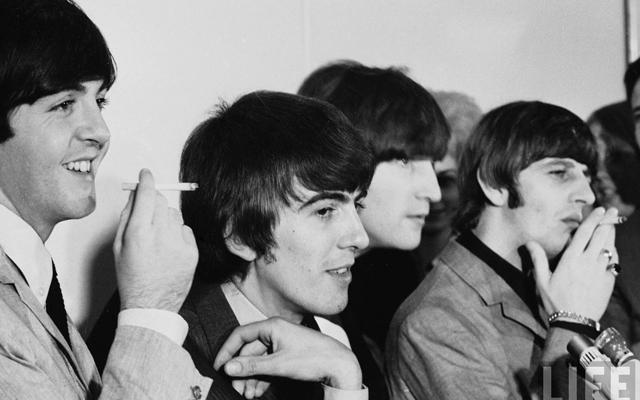
Fifty-four years ago today – the Beatles insisted Britain legalize weed in a newspaper ad
The Beatles and band manager Brian Epstein paid for an expensive full-page ad that ran in the London Times on July 24, 1967, and joined a dozen activists in urging lawmakers to legalize cannabis in the UK Cannabis – but especially Paul McCartney, who repeatedly describes cannabis as transformative in her songwriting development.
Given the wording of the 1967 ad, one might think that the cannabis legalization argument was printed yesterday: “The law against cannabis is immoral and impractical,” reads the headline. Pot is “the pleasure, and least harmful drugs […] in particular, far less harmful than alcohol. ”
It continues: “Smoking cannabis is widespread in universities and the practice has been adopted by writers, teachers, doctors, business people, musicians, scientists and priests. Such individuals do not fit the stereotype of the unemployed criminal dope house. ”The ad was signed by the Beatles, their manager, and several dozen other activists fighting against marijuana laws in Britain
As early as 1967, activists knew that the propaganda about the so-called dangers of cannabis was based on lies. The sense of urgency to legalize cannabis was fueled by the arrest on June 1, 1967 of the founder of the International Times, John Hopkins, who also founded the UFO Club and the 24 Hour Technicolor Dream. Hopkins was arrested and sentenced to nine months in prison for simple possession – sparking outrage among the thriving hippie crowd in the UK.
An emergency meeting was held the very next day at the Indica Gallery, an art gallery in London that at the time served as the headquarters of the counterculture. Steve Abrams of the drug research organization SOMA suggested running a full-page ad calling for cannabis to be legalized.
Shortly thereafter, Paul McCartney agreed to self-fund the full-page ad and get the band involved. Steve Abrams contacted Brian Epstein’s office and shortly thereafter received a personal check of McCartney’s funds for £ 1,800 made out to The Times — the equivalent of £ 37,303.23 or $ 51,321.78 today, adjusted for inflation. At the time, the parties admitted that this was double the average annual wage at the time and that it was one of the paper’s riskiest moves.
The Beatles’ first “hit”
By the time the London Times ad ran, the Fab Four had been smoking weed for about three years: on Friday, August 28, 1964, in a room at the Delmonico Hotel on Park Avenue and 59th in New York City, The Beatles first met Bob Dylan – and he damned sure they remembered it. This seemingly insignificant meeting turned into a defining moment in rock ‘n’ roll history. Fortunately, journalist Al Aronowitz was in the room to record the chain of events – in great detail.
Dylan took out a big joint, like the drug pied piper, and handed it to Ringo Starr, who smoked it like a cigarette without knowing how to smoke it any other way. One by one, the band is said to have smoked weed for the first time in their life, according to Aronowitz’s report. Everything changed at this point, especially the themes of the band in songs.
All four band members were seasoned with the plant. Virtually anyone could see the red eyes in Help! from 1965 easily recognized. Film or the myriad other references to pot in the music of the Beatles. Paul McCartney smoked weed every now and then well into his seventies, used it as a theme in many songs, and was repeatedly arrested for cannabis.
“They gave him 10 for two and what else can the judges do,” John Lennon lamented in his 1972 protest song about the ridiculous 10-year prison sentence imposed on White Panther and anarchist poet John Sinclair for two joints in retaliation against law enforcement officials .
Recalling the Rubber Soul album, George Harrison said it was a “full fledged stoner” record where he continued to sing about “Papa White Smoke” later in life. Last but not least, Ringo Starr is technically the first Beatle to smoke weed, but some rock historians look back and say he was the last in the pecking order but the only one brave enough to smoke first.
It’s hard to imagine the Beatles’ music without the influence of cannabis and psychedelic drugs, especially in the later years of the band’s formation.

Post a comment: